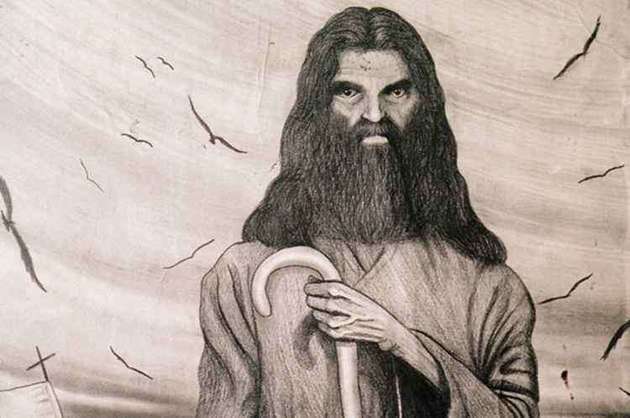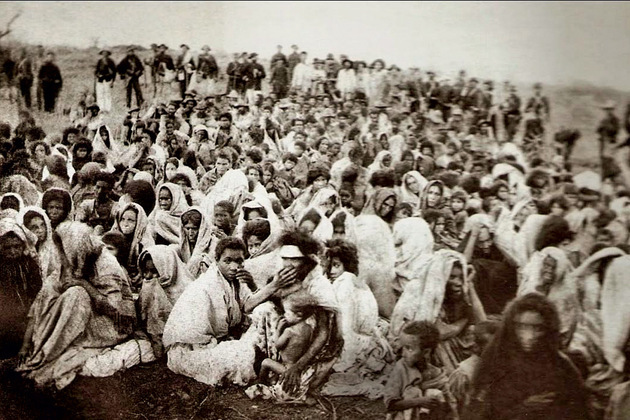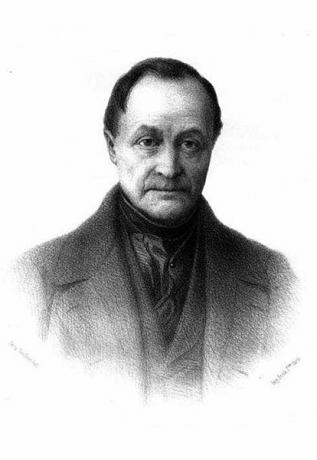Antônio Councilor (1830-1897) was a religious leader and the founder of the Belo Monte camp, better known as Canudos.
He was considered a religious fanatic at the time he lived, as this was a way for the republican government to justify the massacre perpetrated against his followers.
Antônio Conselheiro's Biography
Antônio Vicente Mendes Maciel, Antônio Conselheiro, was born on March 13, 1830, in the current city of Quixeramobim, in Ceará.

His father was a merchant and his mother died when he was six years old. Both wanted their son to be a priest, a way that people without economic conditions had to study and rise socially.
Antônio learned to read and write, and was a reader of the stories of saints, knights and mystics that circulated in the sertão. He read a lot, including authors banned by the Inquisition.
Unable to enter a religious seminary, he ended up helping his father in the family store. When he died, he decided to go on a pilgrimage through the hinterland with his wife and mother-in-law.
In this nomadic life, he has various occupations as a teacher, clerk and clerk. He traveled through the backlands of Bahia, Sergipe and Pernambuco, and his fame spread. In this way, he earned the nickname “Counselor” recognizing that he was a sage and that he helped those in need.
He was wrongfully accused of murder and is arrested. When he leaves prison, he decides to go out into the northeastern hinterland collecting stones to rebuild churches and meet the “bad luck”.
Antônio Conselheiro's followers were formed by former slaves, dispossessed indigenous people and exploited workers. With its increasingly numerous faithful, it builds churches, dams, bridges, cemeteries and its authority grows.
He leaves the life of a pilgrim and settles in the camp called Canudos, which is renamed Belo Monte.
There he leads a community that would become a problem for local and national authorities. To put an end to Canudos' bad example, the federal government carries out a veritable massacre, putting an end to the Counselor's place and life.
Life in Canudos
It is estimated that Canudos brought together 30,000 people in about 5,200 homes.
There, the "counsellors", as the inhabitants were called, enjoyed communally the goods produced. There was a common fund to support the sick and the fruit of the work was shared among all.
The place was described as a promised land where there was "rivers of milk and the ravines were of corn couscous”.
People felt touched by the words of Antônio Conselheiro because they understood that it was a path that would lead to material and spiritual progress, contrary to what happened when they listened to preachers traditional ones.
Straw War
The Canudos War must be understood in the context of the newly proclaimed Republic that further excluded the poor from Brazilian society. Another conflict with the same characteristics took place in the south, the Contested War.

Belo Monte became a problem for the government of Bahia, as the inhabitants did not pay taxes and the farms lost their cheap labor.
Faced with the growth of the Belo Monte camp, the authorities in Bahia are beginning to worry. First, some religious missionaries try to dissolve the camp peacefully.
However, they cannot get the "counsellors" to disperse, as they declare that they do not need the help of the priests and the traditional Church.
Faced with the impasse, three Army expeditions are carried out to end the Arraial de Belo Monte. The fight was hard and bloody, and ended with the complete destruction of the camp on October 5, 1897.
Curiosities about Antônio Conselheiro
- Until today there are temples built by Antônio Conselheiro as the matrix of Crisópolis/BA.
- In reality, there were three camps in Canudos. Currently, the second of them is flooded by the Cocorobó Dam and in times of drought it is possible to see the ruins of the church.
- The Canudos War was covered by the reporter from the State of São Paulo, Euclid da Cunha. The report gave rise to the book "Os Sertões".

